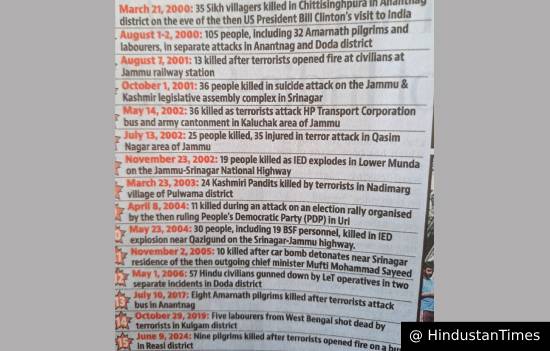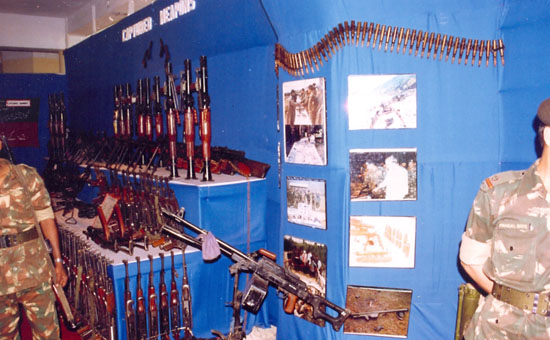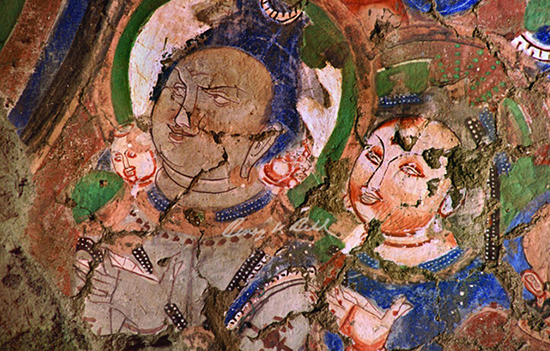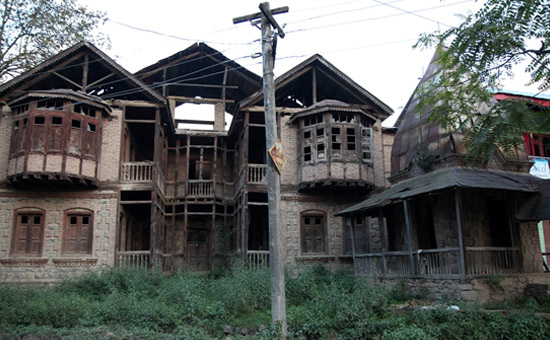- This article includes what Indians must learn to accept, why Pahalgam attack now, China’s attitude, Shimla Agreement abeyance, what needs to focus on in Indus Water Treaty.
Pahalgam
28 tourists killed. National Outrage. Is this is the first time?
Excerpt
from Hindustan Times report-Year 2000
35 Sikh villagers killed, 2003 34 Hindu Pandits killed, 2006 56 Hindu
civilians, 2008 Hindu pilgrims killed Amarnath Yatra, 2024 9 pilgrims killed
after terrorists opened fire on a bus in Reasi district.

What
is common? Hindus and Sikhs killed. Not to forget what happened to Kashmiri Pandits in 1990.
Nothing happens without local support. Pakistan ISI killing Hindus for 45 years
India’s reaction should not be driven by emotion. Strike at a time and place of your choosing.
Former
top cop KPS Gill, the man who wiped out terrorism from Punjab, wrote in the Endgame in Punjab (Source South Asia
Terrorism Portal) “The core issue of instability and violence in South Asia is the character, activities and persistence of the militarized Islamist-fundamentalist state in Pakistan.”
“The fact is, the confrontation between India and Pakistan is not about territory – in Kashmir or elsewhere. It is an irreducible ideological confrontation between a pluralist secular democracy, on the one hand, and a religious fundamentalist, intolerant and exclusionary ideology, on the other, that denies not only rights, but also basic humanity, to those who do not submit to its belief system.”
 Arms seized from Kashmiri terrorists displayed by Indian Army at exhibition in 1998.
Arms seized from Kashmiri terrorists displayed by Indian Army at exhibition in 1998.
Indians must learn to accept that–
1. India’s neighbourhood is disturbed. Pakistan and Bangladesh aim to make India Muslim majority.
2. A country that is borne out of hatred for Hindus, Buddhists, Jain, Sikhs and not because it loves itself has to continue hating because i.e. the reason for its existence. Thus, economy, development and democratic institutions taken a back-seat.
3. As long as Pakistan exists in its present form, agenda number 1 is to make Bharat fail.
4. Pakistan made export of terrorism an instrument of State Policy. It is tool to remain relevant globally-what is nuclear bomb falls into the wrong hands.
5. Since 1947-48
Pakistan has made Jammu & Kashmir a key issue to unite its people. It
cannot see the region peaceful/prosper. Hence, non-stop violence.
6. Since 2019 the government of India and media ceased to give Pakistan importance in its foreign policy and coverage. Like a young child cries when ignored so Pakistan takes to terror attacks to attract attention.
7. Till Galwan Valley lashes in 2020 Pakistan was India’s enemy number 1. Now that position is claimed by China.
8. Pakistan is a Chinese pawn
cultivated by the latter to keep us tied down to the sub-continent. This is to
prevent India from realising its full potential, fulfil its global ambitions or
be a competitor to China. It also compels India to prepare for a multi-front
theatre in the event of war with either country.
9. Do not let
your guard down with Pakistan or China.
10. Ahimsa is a spiritual concept. India can love only those who respect its right to co-exist.
11. The West needs someone to do its dirty work so need Pakistan for e.g. making ammunition for the Ukraine War.
12. Muslims ruled over India for 800 years is a myth. Read Here
A former diplomat who was once posted in Pakistan said, “Pakistan sought “Unity in Uniformity” whilst “India respected Unity in Diversity.”
China
 Shiva and Parvati, Mural,
Kizil Caves, Kucha, Xinjiang Uygur Autonomous Region, c. 6th Century CE, China.
Pic by Benoy K Behl.
Shiva and Parvati, Mural,
Kizil Caves, Kucha, Xinjiang Uygur Autonomous Region, c. 6th Century CE, China.
Pic by Benoy K Behl.
Remember
China and Pakistan are Siamese twins. Read
Are China and
Pakistan Siamese Terror Twins
China
wants access Indian markets so making India
believe it wants to improve relations.
China is an autocracy, India a democracy. If India can deliver
results for its citizens, Chinese people will ask why no democracy? India has
to fail so the Communist Party of China can prove the need for autocracy.
China
wants its nominee to be the successor to Dalai Lama. Read Tibet
is at the heart of the India China dispute
By violent acts like Pahalgam it is hoped that the government’s focus and people’s attention gets diverted from nation building to internal security. It also hopes to demoralise people of India and give fuel to India’s opposition parties.
Most
importantly, India is today amongst the fastest
economies in the world. Its infrastructure has improved, stock markets are doing
well, has secessionist movements under control and the mood is optimistic. It
has exported Brahmos missiles to Philippines and the ATAGS (Advanced Towed Artillery Gun System) to a European country not to forget ammunition to U.S.A. The West is talking of India being a key player in the China+1 strategy.
Read by Lt Gen JS
Bajwa (retd) How India can
build National Power
and How India can
build Comprehensive National Power
India must focus on building Economic + Military Power and
BRANDS.
Why Now
1.
An improvement of the ground situation in the Indian UT of Jammu and Kashmir.
Perhaps, it made the security forces a bit slack.
2. To divert attention from Pakistan’s internal problems namely Baluchistan, Gilgit/Baltistan not to forget Pashtuns and use Islam to unite opponents.
3. Being wary of India’s improved ties with USA esp. under the Trump administration. It is no coincidence that U.S. Vice-President Vance was in India when the attack took place. Earlier, there were riots in Delhi when Donald Trump
visited in 2020.
4.
Accentuate the Hindu Muslim divide in India.
5. Derail India’s plans of implementing China+1.
This might sound exaggerated because China is far ahead of India.
6.
A signal to Muslim-majority Bangladesh to join hands with it to bring down
Hindu India. Note that Murshidabad riots preceded the Pahalgam attack.
Former
foreign secretary Kanwal
Sibal wrote in 2019, “As
things are, Pakistan is in illegal occupation of large parts of the erstwhile
State of Jammu and Kashmir (J&K) that acceded to India in its entirety.
Pakistan has gained enormously geo-politically from this occupation, as it has
now contiguity with China and India has no contiguity with Afghanistan. Imagine
a situation in which Pakistan had no land link with China- the whole
geo-politics of the sub-continent would have been different.”
 Burnt Pandit homes in Anantnag 2014.
Burnt Pandit homes in Anantnag 2014.
Simla Agreement
In retaliation to India’s reaction post Pahalgam Pakistan suspended
the 1972 Shimla Agreement or kept it in abeyance. In the last 30 odd years
never heard Pakistan mention this agreement so surprised it remembered the
agreement now.
“The agreement “was a comprehensive blueprint for good neighbourly relations between India and Pakistan”, with both countries undertaking “to abjure conflict and confrontation which had marred relations in the past, and to work towards the establishment of durable peace, friendship and cooperation”. Indian Express
Pakistan
has exported terrorism to India since 1972 so the agreement had no value. The
agreement did establish a Line of Control (border) in Jammu and Kashmir but means
little now.
Pakistan
always referred to UN Resolutions not the Shimla Agreement.
UN Resolutions
I
earlier wrote, U.N. resolution provides that Pakistan was to withdraw its
troops from the State (Mirpur, Muzzafarabad, Gilgit and Baltistan. Since
Pakistan has not withdrawn its troops, India could not conduct a plebiscite. The
U.N. did not contest the accession of the princely state of J&K to India.
Read All you wanted to
know about Jammu and Kashmir Accession to India
Note that Nehru's promise of plebiscite was made in his All India Radio broadcast of 23/12/1949. However, according to former CJI M C Mahajan the IOA and the Indian Independence Act 1947, passed by the British Parliament, gave no legal or constitutional authority to Nehru or Mountbatten, the then governor general, to make that promise. Justice A S Anand presented a series of arguments to conclude, ‘This position brings one to the conclusion that to hold a plebiscite would be repugnant to the Constitution of India and J&K’. 1pg 85
Indus Water Treaty
This requires a separate article. By keeping the treaty in abeyance Pakistan is given a
message.
India must focus on utilizing its share of the waters under the treaty. Lt Gen Grover makes interesting points.
In
a 2025 article Lt Gen Pramod Grover wrote in Tribune Chandigarh, ““First, it allocates the water of the three western rivers to Pakistan, but allows India to tap the considerable hydropower potential before the rivers enter Pakistan. Second, the treaty allowed India to create storage on the western rivers of 1.25, 1.60, and 0.75 MAF (million acre feet) for general, power, and flood storages, respectively, amounting to total permissible storage of 3.6 MAF. Third, the treaty does not require India to deliver assured quantities of water to Pakistan and instead it requires India to
let flow to Pakistan the water available in these rivers excluding the limited
use permitted to India by the treaty. Fourth, there
are no quantitative limits to the hydroelectricity that India can produce using
the western rivers nor any limit to the number of run-of-the-river projects India can build.”
Lt Gen Grover also wrote, “Of the 1.34 million acres permitted for irrigation, India is using only
0.792 million acres. Out of an assessed potential of 18,653 MW, only projects worth 3,264 MW have been commissioned so far.” So Pakistan is getting bonus flows.
Expect short videos and media reports to flood Indian viewers on how Pakistanis are suffering due to water shortage i.e. even before India has stopped flow of water to Pakistan. Read Water Efficiency in Pakistan and Water Mismanagement in Pakistan
Disclosure
- Though Nayyars hail from Jullundur district, the majority of my forefathers
come from modern day Pakistan. In fact Dad was born in Lahore and Ma in
Bhopalwala (district Sialkot). Notwithstanding I wrote What stops me from
loving Pakistan
India must focus on becoming an economic and military power and
she has to do that inspite of Pakistan and China.
I am grateful to my father for moving from Lahore or I would have to change my name, like Trinamool Congress MP Derek O'Brien's cousins did, to say Abdul Hameed Nayyar.
As
the condition of Pakistan worsens there might be a clamour for Akhand Bharat, a
foolish emotional idea.
Let
them pay for their karmas as we say
in Bharat.
References
1.
The Constitution of Jammu and Kashmir, Its Development and Comments. Third
Edition 1998 by Justice A S Anand
Also read
1.
Ten behavioural
traits India must change to successfully counter Pakistan
2.
How India can
build Comprehensive National Power
3.
All you wanted to
know about Jammu and Kashmir Accession to India
4.
List of Terrorist Attacks
in India
5.
Did Muslims actually
rule India for 800 years
6.
Did Godhra save Pakistan
7.
Why Akhand Bharat
is a BAD Idea
8.
Why has Democracy Failed in Pakistan
9.
How Democracy
evolved in India
10.
How many Indians
died in the Kashmiri Terrorist Movement
11. How many Indians died in the Khalistan Movement